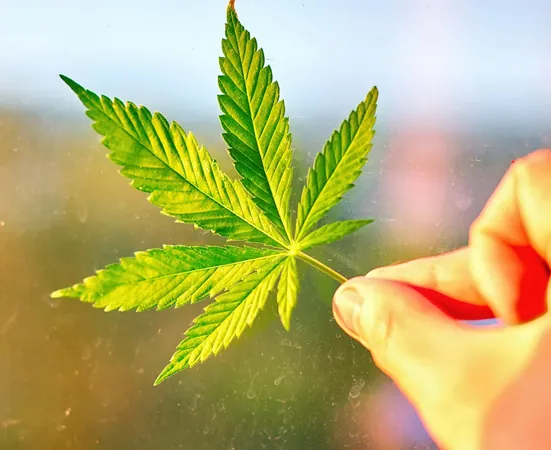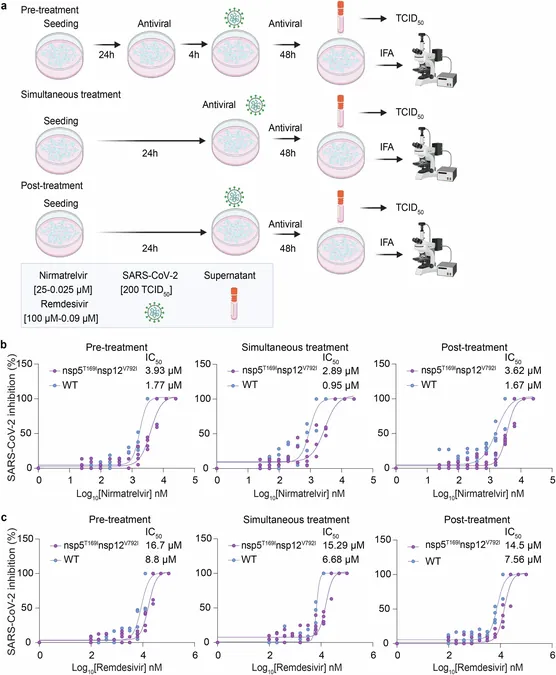
Hemp Leaf Extracts: A Groundbreaking Natural Solution to Combat Mosquito Larvae!
2024-09-21
An exciting breakthrough in research is shedding light on the powerful insecticidal properties of hemp, specifically cannabidiol (CBD), a compound renowned for its therapeutic benefits. Recent studies published in the respected journal Insects have revealed that hemp leaf extracts can effectively exterminate mosquito larvae in just 48 hours, marking a promising advancement in the fight against the world's most dangerous insect – the mosquito.
Targeting the Vulnerable Stage of Mosquitoes
Lead researcher, Erick Martinez Rodriguez, a graduate student in entomology at The Ohio State University, emphasizes the critical importance of targeting mosquitoes in their larval stage. "Controlling these pests early on is vital, as they are most vulnerable at this point in their lifecycle," he stated. Adult mosquitoes are notorious for spreading fatal diseases such as malaria, dengue fever, and Zika virus, making their larvae just as important to address.
Unique to this study is that it demonstrated the lethality of CBD against both strains of the yellow fever mosquito, including one that has shown resistance to traditional insecticides. This resistance has become increasingly concerning, as conventional insecticides often cause environmental damage due to overuse and may lead to further resistance.
Hemp: A Sustainable Alternative
The research team drew inspiration from earlier studies that highlighted nature's potential for insect repelling. A shift was made towards exploring hemp, a sustainable and eco-friendly crop. Unlike its cousin marijuana, which contains high levels of THC, hemp provides a bounty of CBD without the psychoactive effects.
To test its insecticidal properties, researchers created a potent extract by pulverizing dried hemp leaves, soaking them in methanol. "What astonished us was how little of the extract was required to achieve such deadly results," remarked Martinez Rodriguez. The effectiveness of CBD is particularly notable as it bypasses the metabolic resistance that other insecticides face.
A New Era of Natural Insecticides
This groundbreaking discovery not only positions hemp as an affordable option for producing insecticides but also raises crucial questions regarding its safety for non-target species. Co-author Peter Piermarini, an entomology professor at Ohio State, noted that CBD appears to be safe for human and animal consumption. "Exploring how CBD interacts with various proteins in both mammals and insects may provide valuable insights into its selective effects," he added.
While further studies are needed to ascertain CBD’s safety for pollinators like honey bees, this research paves the way for a transformative approach toward natural insecticides.
Environmental Considerations
As the potential use of hemp-derived CBD as a natural insecticide expands, the research community is tasked with its ecological implications. Understanding how CBD-infused solutions affect aquatic environments, where mosquito larvae thrive, is critical for maintaining biodiversity. Collaborative efforts with environmental scientists can establish guidelines that leverage the benefits of these natural solutions while protecting ecosystems.
Future Research and Broader Applications
The initial study opens multiple avenues for future research, including the evaluation of how effective CBD can be against other resilient mosquito breeds and agricultural pests. Researchers are looking to refine extraction techniques to optimize the CBD concentration for enhanced pest control.
Moreover, scientists are exploring genetic modifications to bolster hemp's insecticidal properties, potentially creating a robust arsenal against various pest challenges.
Towards Eco-Friendly Pest Management
As this research highlights the potency of hemp as a natural insecticide, the implications stretch far beyond just mosquito control. There is hope that CBD could be adapted for controlling other harmful insect pests that threaten global agriculture and public health. Such innovations could lead to an increased variety of biopesticides, thereby providing eco-friendly strategies to combat the growing issue of insecticide resistance.
In summary, the use of hemp leaf extracts could mark a significant shift towards sustainable pest management, embodying both ethical and environmental benefits. Exciting research lies ahead as we unravel the full potential of CBD in our ongoing battle against insect pests!


 Brasil (PT)
Brasil (PT)
 Canada (EN)
Canada (EN)
 Chile (ES)
Chile (ES)
 España (ES)
España (ES)
 France (FR)
France (FR)
 Hong Kong (EN)
Hong Kong (EN)
 Italia (IT)
Italia (IT)
 日本 (JA)
日本 (JA)
 Magyarország (HU)
Magyarország (HU)
 Norge (NO)
Norge (NO)
 Polska (PL)
Polska (PL)
 Schweiz (DE)
Schweiz (DE)
 Singapore (EN)
Singapore (EN)
 Sverige (SV)
Sverige (SV)
 Suomi (FI)
Suomi (FI)
 Türkiye (TR)
Türkiye (TR)